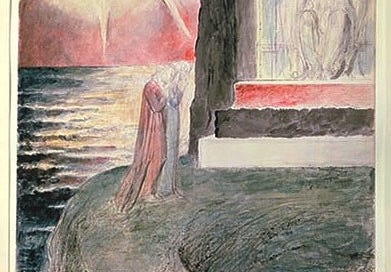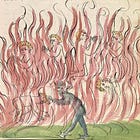This article continues from:
As always, basic familiarity with Fourth Way texts is assumed.
For full citations of abbreviated references, please see Introduction and Bibliography.
We finished last time with a quotation supposedly from Jane Heap, that seems to illustrate very cogently the suffering of the awareness of the difference between what one understands and what one can do.1 And even the rawest beginner, surely must also be given an iota of that very high thing, understanding.2 I repeat the quotation:
Purgatory is to understand more than we can do.3
However, this sounds like something straight from Orage. On November 19th 1927, from a discussion between Orage and his group on “good and evil,” there is recorded the following:
Daly: I understand that before he can choose, even incorrectly, the individual must know the plan of campaign.
Orage: Yes, consciousness may be developed in advance of will.
Daly: I thought will was the last thing developed.
Orage: There is a difference in the capacity of will according to development; it doesn't mean that there is no will to begin with.
Daly: Then full development of will is dependent on consciousness?
Orage: That is true, but they develop simultaneously. The seed is last developed, but it is already in the bud. The development of will, consciousness and individuality is both simultaneous and successive.
Daly: I thought Purgatory was the state of consciousness without will.
Orage: Not enough will for what is understood.
Daly: The beings there can't participate in the conscious plan of God?
Orage: They participate but suffer because they know more than they can do.4




